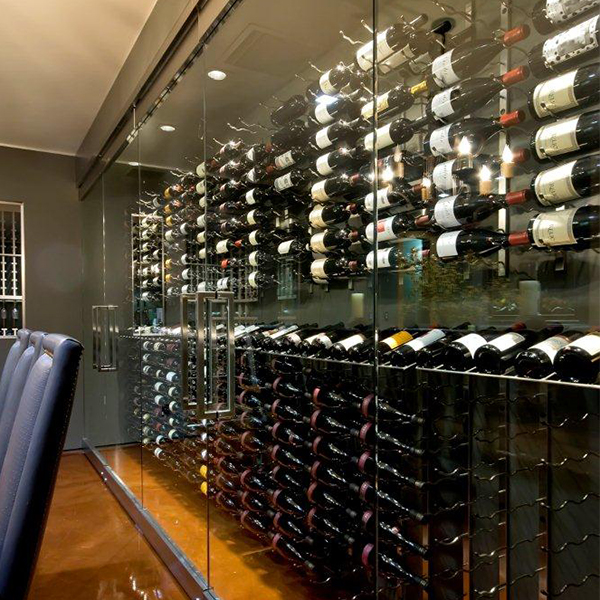The Ideal Wine Storage Environment
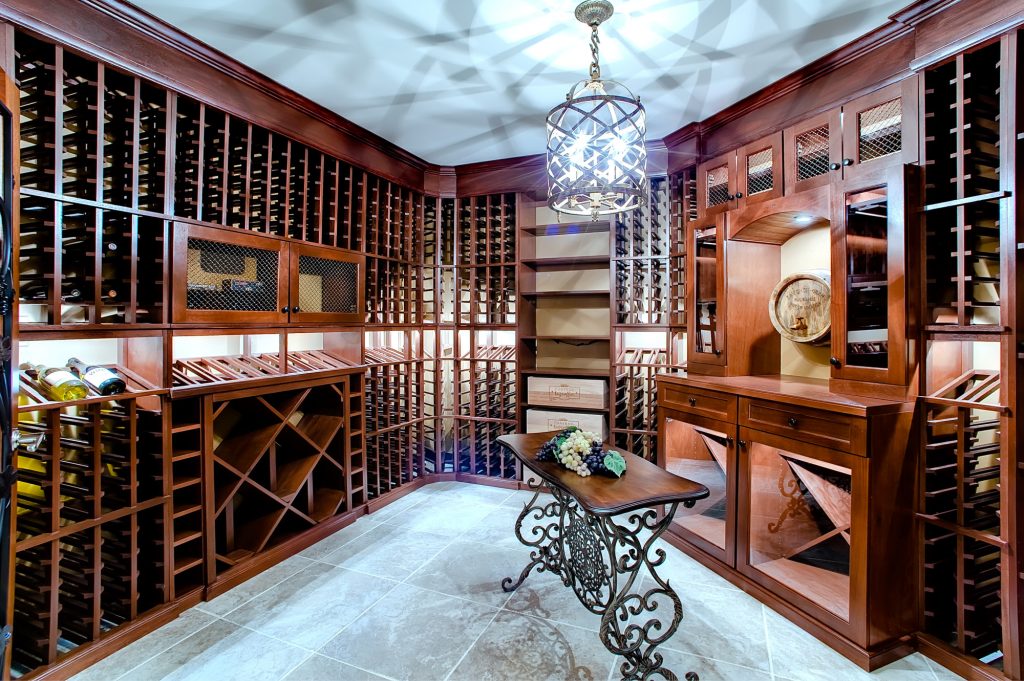
Once you’ve decided to build a wine cellar, do you know what you need to do to properly store wine so it ages to perfection? Here’s some key information on how to store your precious wine collection.
Light
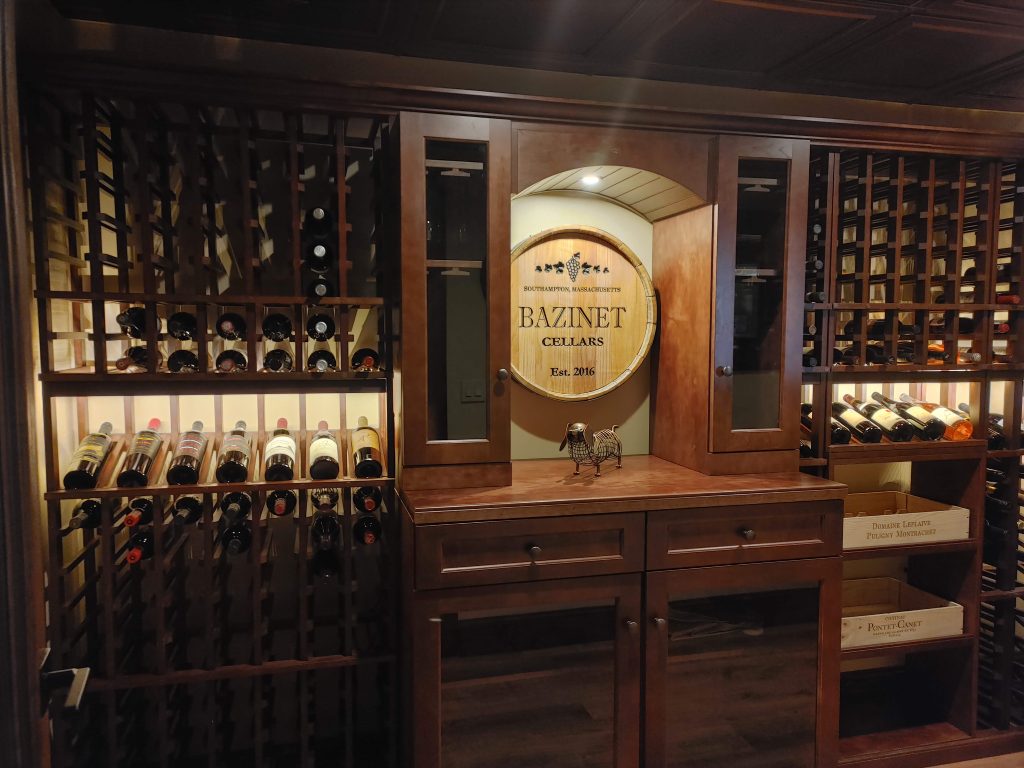
Ultraviolet (UV) light can wreak havoc on a bottle of wine, especially when exposure extends for long periods of time. UV rays destroy the tannins in wine.
Tannins play an important role in preventing oxidation which can prematurely age wine.
Heat
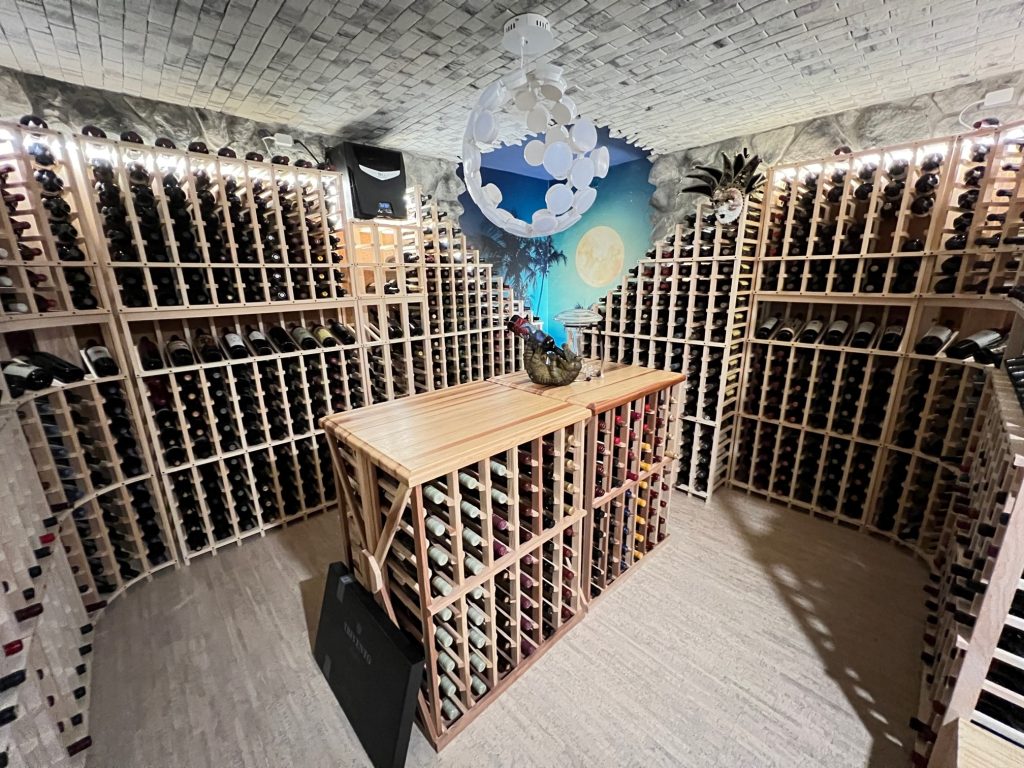
Heat can ruin the flavor of a bottle of wine if it is exposed to it for long periods of time.
Early French winemakers discovered that wine stored cool damp cellars actually improved with age. The cool temperatures slow the aging process and allow the wine to acquire beneficial characteristics over time.
Evidence suggests that the wine aging process may stop altogether when temperatures fall below 45 degrees F.
Vibration
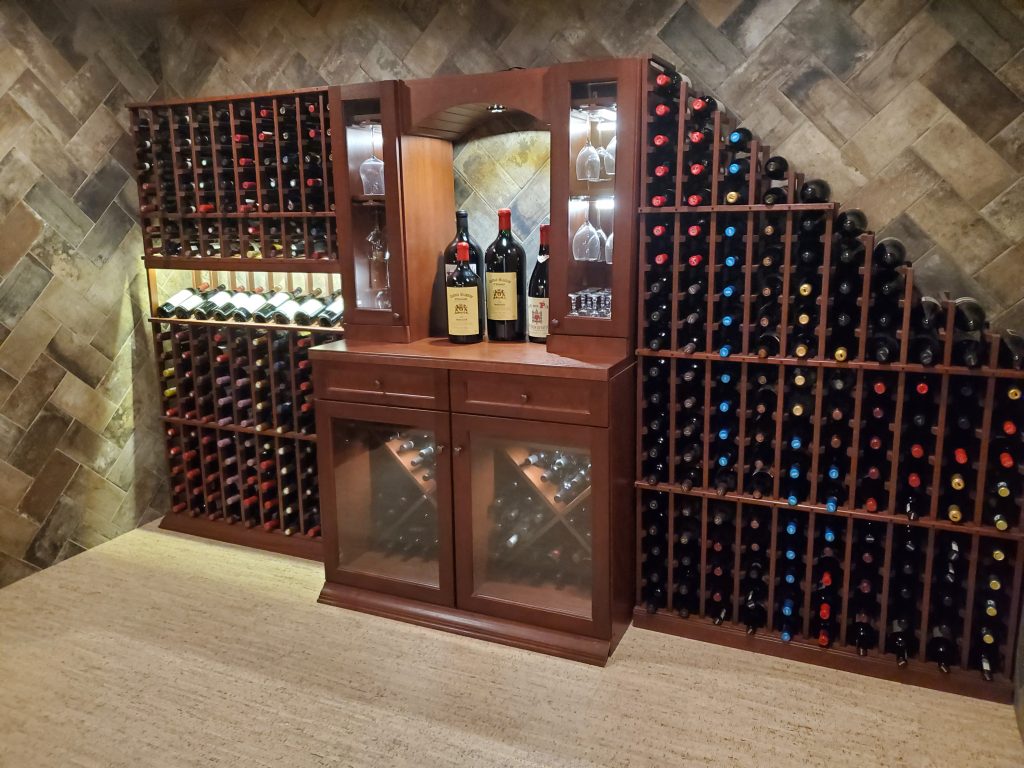
Vibration of the wine may upset the liquid-to-solid balance and artificially accelerate the production of solids. Take care to make sure your wine is not subjected to vibrations from household mechanical systems such as
cooling units, laundry equipment or the like.
Odor
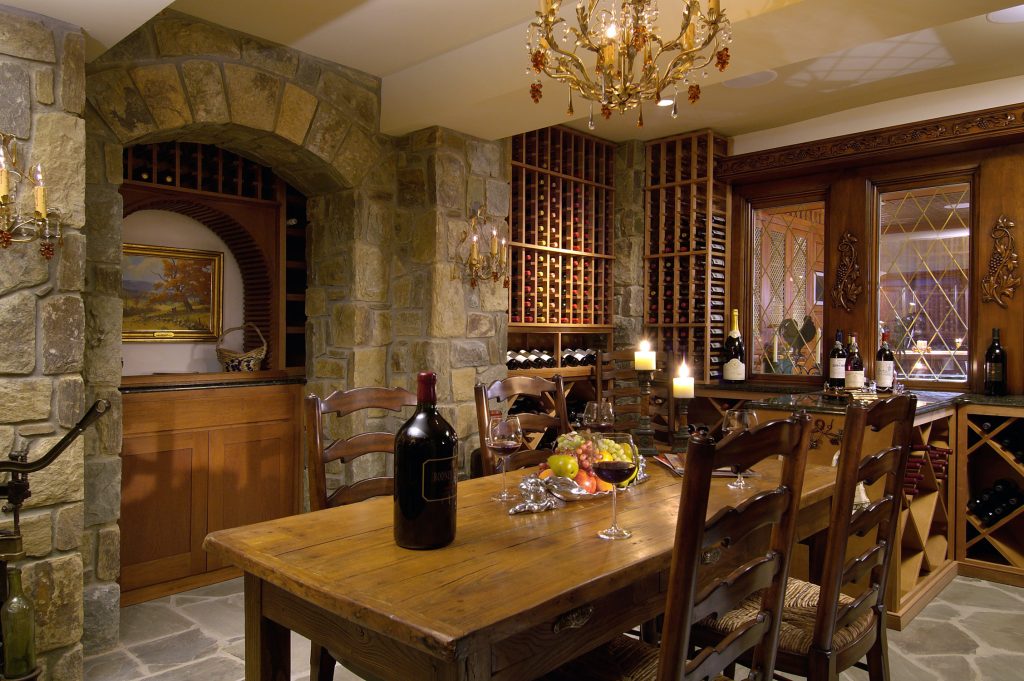
Strong, sustained odors can negatively alter the flavor of wine. This
is particularly true for corked wine, which remains the most popular
capping method. Wine in bottles with a mechanical screw top are
essentially immune to outside odors.
The most common harmful odors come from the presence of
such things as aromatic woods like Western Red Cedar, household
chemicals, strong spices or even garlic. Every effort should be made
to keep any odor-producing compounds isolated from your wine.
Temperature and Humidity
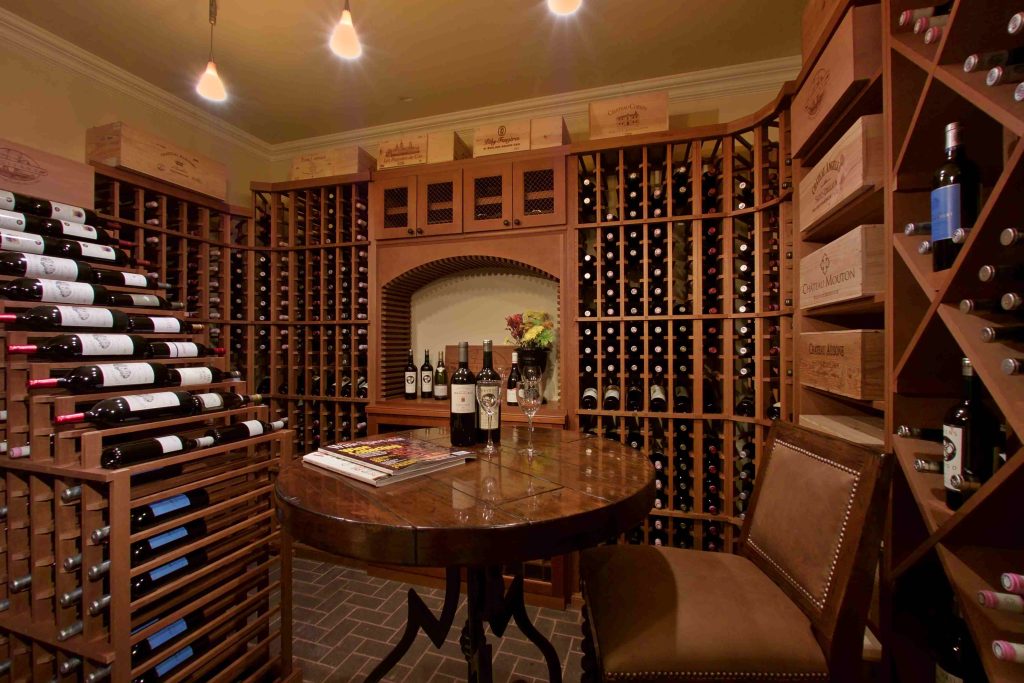
Wine should not be subjected to very cold temperatures. White
wine serving temperatures in the low 40 degree F range should be
the absolute lowest temperature for long term wine storage for reds or white wines. Freezing temperatures will ruin all wines.
Corked wine is particularly vulnerable to dry conditions while wine stored in bottles with mechanical screw caps is more protected. Ideal humidity should fall in the 60-65% range at 55 degrees F. Humidity levels above 65% at 55 degrees F can be equally dangerous for wine and wine labels.
Wine Storage Experts

Vigilant has over twenty-five years of experience creating wine storage solutions for our clients. Schedule a free consult, fill out a design request, or play around with our FREE Virtual Wine Cellar Design Tool!

